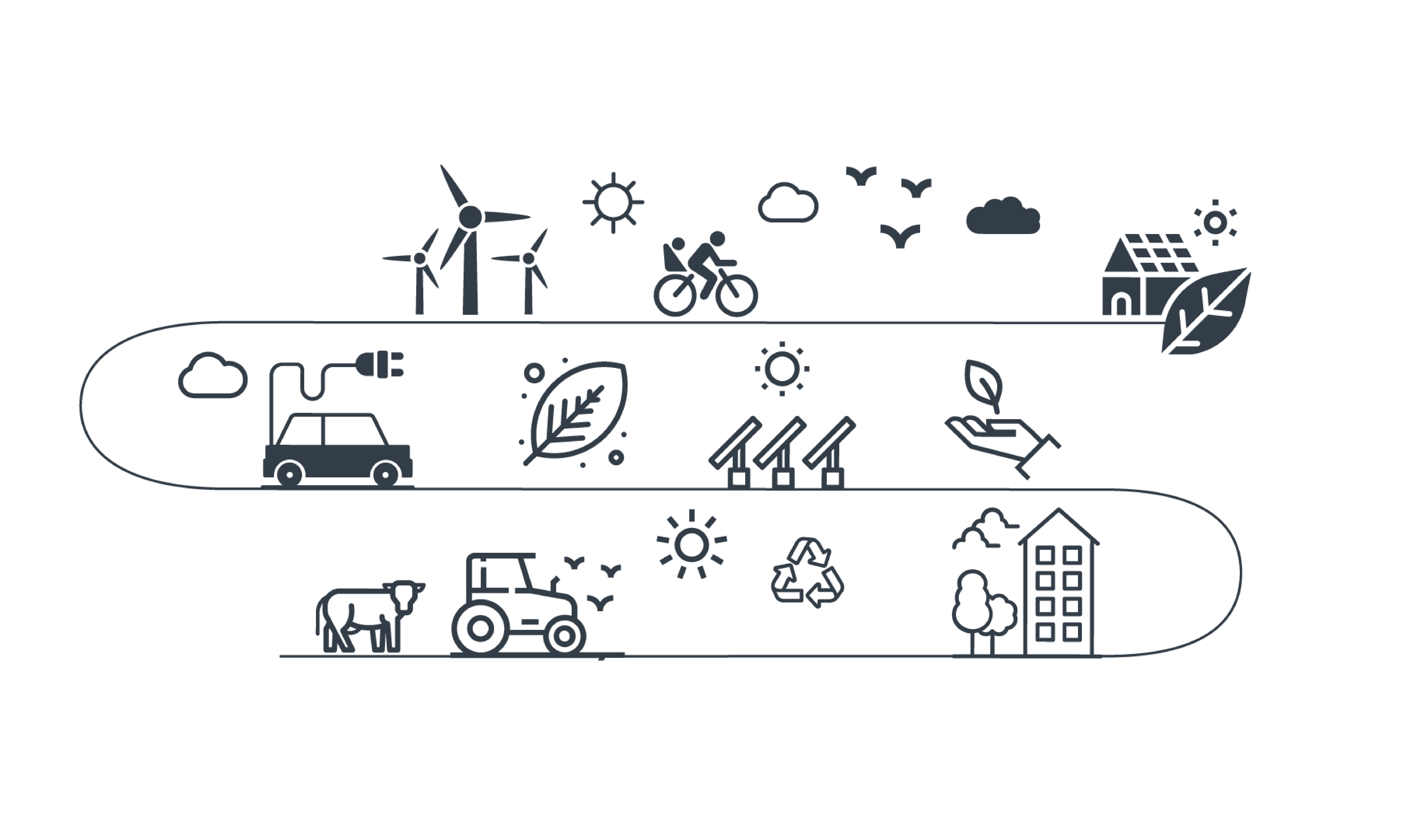You need to confirm you are over the age of 25 and living in Scotland
Nature
Agriculture and land use will make a double contribution to net zero. The industry wants to reduce greenhouse gas emissions produced from farming and increase the levels of carbon dioxide absorbed through tree planting and peatland restoration.
Low carbon farming and afforestation will be a focus for this industry.
Nature helps us to predict the future
Hear from Juan, an ecologist based in the UK Centre for Ecology and Hydrology in Edinburgh.
His job puts him at nature's front door. What makes it so essential to in our journey to net zero is his ability to predict failures in our environment by studying nature.
Watch his video to learn more.
The agriculture and land use industry will grow in response to net zero, meaning there will be new roles to fill. An ageing workforce means that the industry is seeking fresh talent. Companies are actively recruiting the next generation of green workers.
If flexibility in your career is important to you, this could be the ideal sector for you. You'll spend the majority of your working day outdoors in Scotland's beautiful landscapes.
With companies of all sizes, there are many opportunities to develop transferable skills.
New job opportunities
There are plans for a five-fold increase in peatland restoration, doubling of tree planting and more investment in the Woodland Carbon Code.
Agriculture, forestry and fishing will need around 9,900 new workers over the next three years. It’s also expected that by 2031 there’ll be around 18,200 new job opportunities in food and drink. You can expect to find new opportunities in:
- crop and animal production
- fishing and aquaculture
- agriculture
- finance
- urban green infrastructure
- tourism
- forestry, trees and timber
- peatland restoration
- sustainable tourism
- green finance
- urban greenscaping
- integrated land management
How nature can help us build a circular economy
In 2018, more than 400,000 tonnes of animal and food waste were generated across Scotland. The bioeconomy is a new approach which will help the industry create a circular economy by using waste more effectively.
In using the bioeconomy, renewable resources such as plants are broken down into their component parts. These resources are then converted into valuable materials, like food and bioenergy.
In Scotland, the bioeconomy collects value from the by-products of farming, forestry and fishing. It’s estimated that the by-products of Scotland's beer, whisky and fish alone are worth up to £800 million per year.
Now, let’s look at how you can get involved with the agriculture and land use industry.
Apprenticeships
Modern Apprenticeships are available to both young people and adults. They involve learning on the job at the same time as gaining a qualification and bringing home a wage.
There are apprenticeships available to help you step into a career in agriculture and land use, such as:
- agriculture
- aquaculture
- management
- technical
- trees and timber
- horticulture
- rural studies
Apprenticeships.scot has a wide range of opportunities for you to explore.
Volunteering and specialist qualifications
Volunteering can help you get a job. Some companies will give you training to improve your job prospects. Some great places to look for volunteering opportunities are Nature Scot, Woodland Trust and The Conservation Volunteers.
Volunteering keeps you at the forefront of employers’ minds when they have a job vacancy. Formal qualifications are not needed for some jobs as experience is just as valuable.
Through college or university
Scotland's universities and colleges boast a large range of courses in nature-based subjects. These range from NC, HNC and HND through to undergraduate and postgraduate qualifications.
The University of the Highlands and Islands use the area's unique environment. There are many nature-based courses including agriculture, forestry and water management.
Scotland's Rural College has hundreds of courses across more than 20 areas. These courses can give you the skills and knowledge needed to build a strong career.
Skill Seeder is an online resource which allows you to match a skill you’d like to learn with a training provider.
For more information about these job roles and courses, visit Lantra Scotland's careers page.
Further information
Forestry and Land Scotland is the Scottish Government agency responsible for managing our national forests and land.
To learn about the countryside in more detail, visit Countryside Learning Scotland. For information on sustainable forestry, check out the Confederation of Forest Industries (UK).
Nature Scot presents the actions they're taking in response to Scotland's climate emergency. The Dandelion Project is a programme which encourages people to have a 'grow your own' mindset.
Explore other industries
Transport
The creation of low carbon transport brings opportunities to develop new skills as part of the transition to net zero.
Engineering
Technological innovations that lower energy loss, reduce waste and improve the management of resources will help us meet net zero.
Life and chemical sciences
Life and chemical sciences are areas of growth. As Scotland transitions to net-zero, the industries need a new generation of green workers.
